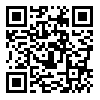year 1, Issue 4 (12-2002)
J. Med. Plants 2002, 1(4): 58-67 |
Back to browse issues page
Download citation:
BibTeX | RIS | EndNote | Medlars | ProCite | Reference Manager | RefWorks
Send citation to:



BibTeX | RIS | EndNote | Medlars | ProCite | Reference Manager | RefWorks
Send citation to:
Parvardeh S, Niapoor M, Nassiri Asl M, Hosseinzadeh H. Antinociceptive, anti-inflammatory and acute toxicity effects of Pistacia vera L. gum extract in mice and rat. J. Med. Plants 2002; 1 (4) :58-67
URL: http://jmp.ir/article-1-797-en.html
URL: http://jmp.ir/article-1-797-en.html
1- Department of Pharmacology, Faculty of Medicine, Mashhad University of Medical Sciences, Mashhad, Iran
2- Pharmaceutical Research Center, Bu-Ali Research Institute, Mashhad, Iran
3- Pharmaceutical Research Center, Department of Pharmacodynamy and Toxicology, Faculty of Pharmacy, Mashhad University of Medical Sciences, Mashhad, Iran ,hosseinzadehh@yahoo.com
2- Pharmaceutical Research Center, Bu-Ali Research Institute, Mashhad, Iran
3- Pharmaceutical Research Center, Department of Pharmacodynamy and Toxicology, Faculty of Pharmacy, Mashhad University of Medical Sciences, Mashhad, Iran ,
Abstract: (6341 Views)
As some Pistacia species showed anti-inflammatory activities, the antinociceptive, anti- inflammatory and acute toxicity effects of Pistacia vera L. hydroalcoholic gum extract were studied in mice and rats. Antinociceptive activity was determined using hot-plate, writhing, and formalin tests. The activity of the extract against acute inflammation was studied using xylene-induced ear edema in mice, The activity of the extract against chronic inflammation was assessed by the cotton pellet test in rats. LD50 value and the maximum non fatal dose of the gum were 3.77 and 1 g/kg (i.p.) in mice, respectively. The intraperitoneal injection of extract (0.25-2 g/kg) in mice showed significant and dose-dependent antinociceptive activity in hot plate. Naloxone (2 mg/kg, s.c.) pretreatment inhibited the antinociceptive activity of the extract. The extract (0.25 and 0.5 g/kg, i.p.) exhibited antinociceptive activity against acetic acid-induced writhing, which was not blocked by naloxone. The extract (0.25-1 g/kg, i.p.) also showed antinociceptive activities in formalin test. In the xylene ear edema, P. vera extract (0.25-1 g/kg, i.p.) showed significant anti-inflammatory activity in mice and exerted remarkable activity against chronic inflammation induced by the cotton pellet in rats as well. It is concluded that ethanolic extract of P. vera gum have antinociceptive effect and this may be mediated by opioid receptors, as well as inhibition of inflammatory mediators. The extract showed also anti-inflammatory effect against acute and chronic inflammation.
Type of Study: Research |
Subject:
Pharmacology & Toxicology
Received: 2001/06/1 | Accepted: 2002/08/9 | Published: 2002/12/20
Received: 2001/06/1 | Accepted: 2002/08/9 | Published: 2002/12/20
Send email to the article author
| Rights and permissions | |
 |
This work is licensed under a Creative Commons Attribution-NonCommercial 4.0 International License. |







